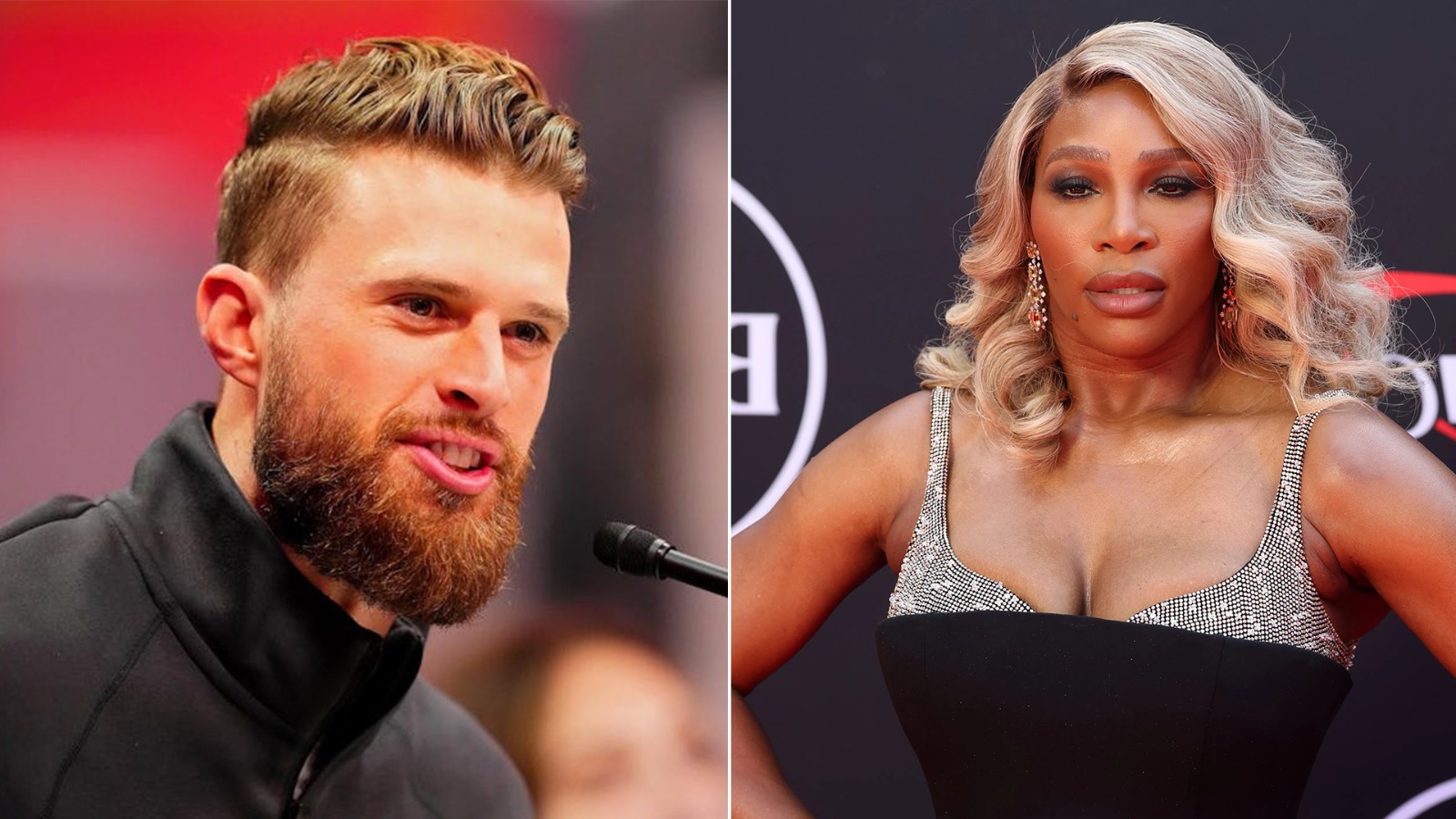Harrison Butker, the placekicker for the Kansas City Chiefs, found himself in an unexpected spotlight following a humorous yet pointed jab at the ESPY Awards by tennis legends Serena and Venus Williams. The incident unfolded during the annual ESPN awards ceremony, where the Williams sisters, alongside Quinta Brunson, a prominent figure in entertainment and creator of the TV show “Abbot Elementary,” took a playful swipe at Butker during their appearance.
The evening, dedicated to celebrating excellence in sports, turned momentarily toward satire when Venus Williams, a stalwart advocate for women’s sports, urged the audience to support female athletes unequivocally. However, her remarks took a humorous turn when she singled out Harrison Butker, humorously suggesting that his support might not be necessary. Serena Williams followed up with a tongue-in-cheek comment, effectively adding to the banter. The moment was capped off by Quinta Brunson, whose quip resonated with the assembled crowd and garnered both laughter and applause.
For Butker, who was present at the event, the response was swift yet measured. The following day, he addressed the playful jibe with grace and diplomacy, reflecting on the nature of sports as a unifying force and the importance of inclusivity in celebrating athletic achievements. Speaking to NBC News, Butker expressed appreciation for Serena Williams using her platform to express her views, acknowledging the diversity of opinions and beliefs within the sports community.
“Sports are meant to bring people together,” Butker remarked, highlighting the spirit of camaraderie and mutual respect that should ideally characterize sporting events. He emphasized the ESPY Awards as an occasion to celebrate the accomplishments of a diverse group of athletes, regardless of differing viewpoints on various issues. By responding in this manner, Butker not only defused any potential tension but also underscored the broader message of unity and inclusiveness that sports can embody.
The incident also sparked a debate on social media, with supporters of Butker pointing out perceived inconsistencies in public scrutiny. Many contrasted the light-hearted nature of the Williams sisters’ remarks with the intense criticism often directed at athletes for their personal beliefs or actions. Commentators highlighted cases where serious allegations against other NFL players had received less attention compared to Butker’s speech on Catholic values and traditional roles during a commencement address at a Catholic college.
Nick Watts, a contributor for Old Row, pointed out the disparity in coverage, noting incidents involving other NFL players accused of violence or misconduct that had not received comparable scrutiny. This sentiment was echoed by David Hookstead of Outkick, who drew attention to the complexities and double standards in public perception when it comes to athletes and their off-field behaviors or beliefs.
Beyond the immediate reaction, the episode raised broader questions about the role of athletes in public discourse and the expectations placed upon them as public figures. While athletes often use their platforms to advocate for social causes or express personal beliefs, they also navigate the complexities of public scrutiny and media portrayal.
For Harrison Butker, known for his reliability on the field and now for his poise off it, the incident at the ESPY Awards became a moment to reinforce the values he holds dear. His response exemplified dignity and respect, qualities that resonate beyond the world of sports and into broader societal conversations about tolerance and understanding.
In conclusion, the ESPY Awards incident involving Harrison Butker and the Williams sisters provided a glimpse into the intersection of sports, humor, and public discourse. It underscored the importance of respectful dialogue and inclusivity in celebrating athletic achievements and recognizing diverse perspectives within the sports community. Butker’s classy comeback not only defused any potential tension but also reaffirmed the ideals of unity and mutual respect that sports can foster. As athletes continue to navigate their roles as public figures, moments like these serve as reminders of the power of sports to unite and inspire, both on and off the field.
